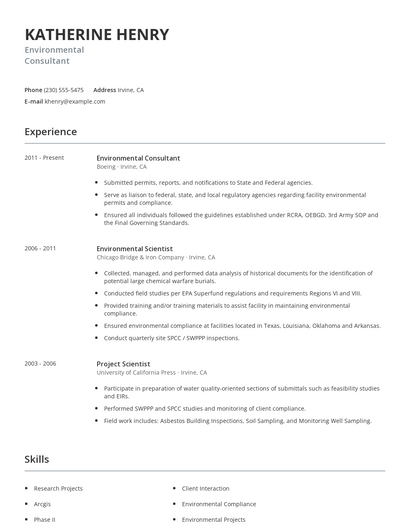
A Technical Consultant can be described as a highly qualified individual with extensive technical knowledge. They are known for their soft skills, and can handle multiple issues. These consultants have a background in Customer Service, Procedures, and Business Process. A Technical Consultant has soft skills such as the ability to create procedures for operating system backups, restoration, organize the physical movement and troubleshooting. Other common job functions of a Technical Consultant include Sales Force Optimization, application development, training, Project Management Support, and Customer Targeting Process Consulting.
Technical consulting requires certain skills
An IT degree is an essential requirement for many jobs. But this isn't the only requirement. Firms look for candidates who can structure a problem logically and come up with a reasoned solution. It is also a strength to be able to make estimates and not need any data. While a college degree is required for most technical consultant positions, some may be willing to hire someone with an unrelated degree and a strong aptitude for programming.

To succeed in this industry, you will need to have strong communication and managerial skills. Technical consultants are often involved in multiple projects simultaneously and must be able to effectively manage their time. They must attend meetings, conduct research and create reports. Effective communication skills are important when working with a team, as they are often the first point of contact between a client and a consultant. You must be able to communicate effectively between clients and colleagues in this role.
Technical consultants can expect a range of salaries
A technical consultant's salary can vary depending on the individual. Years of experience are a good indicator of salary increases. A Technical consultant with ten to 15 years experience can expect a monthly salary of about 5,210 EUR, while someone who has twenty to thirty year of experience can make a median of 5,660 EUR. Salary can also be affected by where you live. Higher salaries are common in bigger metropolitan areas. Knowing the range of salaries for Technical Consultants is crucial.
The average technical consultant's annual salary is $139,164, or about $67 an hour. The average bonus that a technical consultant earns is approximately $6,582. This professional can expect to make between $96,129 to $173,429 based on salary surveys from anonymous U.S. workers. Consider the cost of living in each place before you make a decision to become a Technical consultant.
The job outlook for a technical advisor
Technical consultants are highly adaptable. Some consultants work on a project basis, committing all of their time to one client or project. Sometimes, projects may go on for a while before another one is available. This job is very varied, so you need to be flexible and adaptable. Here are some career options available for tech consultants. Find out more and find out if this career is right for your.

As the name suggests, technical consultants are computer specialists with an expertise in computer technology. They are usually hired through a staffing firm. This job requires highly technical people with passion for engineering, computer science, and technology. Technical consultants do not need a bachelor's, although many have master's and PhD degrees. According to the U.S. Bureau of Labor Statistics the job outlook is good for technical consultants. Through 2020, the demand for computer system analysts is expected to rise by 21 percent.
FAQ
What happens when the consultant finishes the job?
After the consultant has completed the work, they will submit a final document detailing the results. This report includes project timelines, deliverables, and any other pertinent information.
After that, you'll go through the report and decide if it meets your expectations. You can request modifications or terminate your contract if the report is not satisfactory.
What skills are required for consulting?
A consultant should have strong analytical skills as well as interpersonal skills. This is vital because you may not understand the scope of your work. You will need to learn how you manage people and solve problems quickly.
Communication skills are essential. Most clients expect an answer within 24hrs. They assume that you won't respond if they don't hear from them within 24 hours. It is crucial that you keep them up to date and make sure they know what's happening.
How can I be a successful consultant?
It is important to identify an area of passion. First, build relationships. Understanding your clients' needs and operating style is essential. Finally, you must deliver results.
While you don’t have to be the greatest at everything, you have to be better than everyone else. Passion is key. It is not enough to simply say, "I want to become a consultant." You must believe in yourself.
Do I need to pay tax on consulting income?
Yes. Taxes will be charged on consulting profits. The amount depends on how much you earn per year.
If you're self employed, you can deduct expenses beyond your salary.
But, interest payments on loans, vehicle and equipment depreciation will not be allowed to be deducted.
If your annual income is less than PS10,000, you can only claim 25% back.
However, even if your earnings exceed this threshold you may still be subject to tax depending on whether or not you are a contractor or an employee.
Employers are taxed via PAYE (pay as your earn), and contractors through VAT.
What does it mean to be a consultant?
A consultant is someone who offers services to others. It's not a job title. A consultant is a role that helps others achieve their goals. By helping people understand their options and helping to make the right decisions, you do this.
Consultants are experts in finding solutions to the problems and challenges that arise while working on projects. They offer guidance and advice about how to implement such solutions.
A consultant should be able to answer questions about anything related to business, technology, finance, law, management, leadership, strategy, operations, customer service, human resources, etc.
What industries employ consultants?
There are many types and styles of consultants. Some focus on one particular type of business while others specialize in more than one area.
Some consultants work only for private companies, while others represent large corporations.
Some consultants are available to help businesses around the world.
How long does it take to become a consultant?
Your industry and background will determine the length of time it takes. Most people start out with a few months before they find work.
However, many consultants spend years honing their skills prior to finding work.
Statistics
- Over 62% of consultants were dissatisfied with their former jobs before starting their consulting business. (consultingsuccess.com)
- WHY choose me: Why your ideal client should choose you (ex: 10 years of experience and 6-week program has helped over 20 clients boost their sales by an average of 33% in 6 months). (consultingsuccess.com)
- "From there, I told them my rates were going up 25%, this is the new hourly rate, and every single one of them said 'done, fine.' (nerdwallet.com)
- On average, your program increases the sales team's performance by 33%. (consultingsuccess.com)
- According to statistics from the ONS, the UK has around 300,000 consultants, of which around 63,000 professionals work as management consultants. (consultancy.uk)
External Links
How To
How do I start a consultancy company?
A consulting business is a great way of making money online. You don't need any previous business experience or investment capital. A good place to start your own consulting company is to build a website. Once you've built a website, you'll want to use social media platforms such as Facebook, Twitter, LinkedIn, Instagram, Pinterest, YouTube, etc... to get the word out about your services.
These tools allow you to make a marketing program that includes the following:
-
Content creation (blogs).
-
Establishing connections (contacts)
-
Generating leads through lead generation forms
-
Selling products on e-Commerce websites
Once you've created your marketing strategy, the next step is to find clients who are willing to pay you for your services. While some prefer to network through events and networking groups, others prefer to use online tools like Craigslist or Kijiji. The choice is up to you.
After you have found new clients, it's important to discuss terms and payment options. This could include hourly fees, retainer agreements, flat fee contracts, etc. Before you accept a client, you need to know what you expect so that you can communicate clearly all through the process.
Hourly agreements are the most commonly used contract type for consultancy service. This type of contract requires you to provide certain services at fixed rates each week or month. You may be able negotiate discounts depending on what service you offer. You must fully understand the contract you're signing before you agree to it.
Next, create invoices and then send them to clients. Invoicing can seem simple until you try it. There are many ways that you can invoice your clients depending on what your preferences are. For instance, some prefer their invoices to be emailed directly to clients while others prefer hard copies to be mailed. No matter what you do, make sure it works!
Once you have completed creating invoices you will want to collect payment. PayPal is preferred by most people because it is simple to use and offers many payment options. Other payment processors, like Square Cash or Google Wallet, Square Cash or Apple Pay, Venmo and Venmo are also available.
Once you're ready and able to collect payments, you should set up bank accounts. You can track income and expenses separately by having separate savings and checking accounts. It is also a good idea to set up automatic transfers into your bank account for paying bills.
It may seem overwhelming to start a consultancy, but once it is done correctly, it becomes second-nature. Check out this blog post for more information about starting a consultancy company.
The best way to make extra cash is to start a consulting business. Consultants can work remotely so they don't have the hassle of dealing with office politics and long working hours. You have more flexibility than traditional employees because you aren't tied down by work hours.